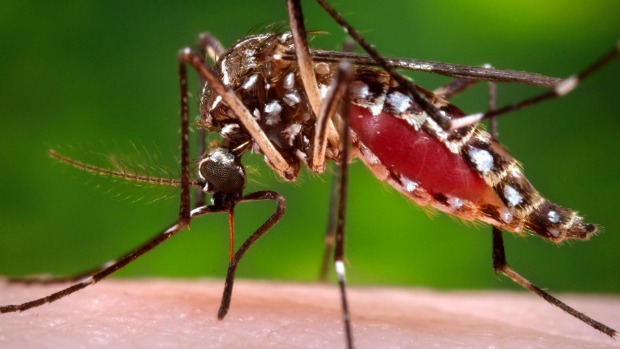-
Tips for becoming a good boxer - November 6, 2020
-
7 expert tips for making your hens night a memorable one - November 6, 2020
-
5 reasons to host your Christmas party on a cruise boat - November 6, 2020
-
What to do when you’re charged with a crime - November 6, 2020
-
Should you get one or multiple dogs? Here’s all you need to know - November 3, 2020
-
A Guide: How to Build Your Very Own Magic Mirror - February 14, 2019
-
Our Top Inspirational Baseball Stars - November 24, 2018
-
Five Tech Tools That Will Help You Turn Your Blog into a Business - November 24, 2018
-
How to Indulge on Vacation without Expanding Your Waist - November 9, 2018
-
5 Strategies for Businesses to Appeal to Today’s Increasingly Mobile-Crazed Customers - November 9, 2018
International Olympic Committee to issue Zika guidelines as Rio Games loom
The iconic Olympic torch will also pass through a refugee camp in Athens on its way to Rio de Janeiro.
Advertisement
IOC President Thomas Bach, jumps over a hurdle while he is playing with children during his visit at the marble Panathenian Stadium, venue of the first modern Olympics in 1896, in Athens on Friday, Jan, 29, 2016.
International Olympic Committee President Thomas Bach said Thursday his organization is in “close contact” with Brazilian authorities and the World Health Organization about Zika.
Bach said the International Olympic Committee has created a $2 million fund “to bring hope through sport to refugees”.
The Centers for Disease Control is advising women who are pregnant or planning to become pregnant to consider postponing travel to areas impacted by the virus, which may be linked to microcephaly, a birth defect resulting in a small head.
Athletes and tourists are being told to weigh up carefully their decision to travel to Brazil for the Rio Olympics, as the country hardest-hit by the Zika virus struggles to contain the spread.
The Brazilian government is breaking out the troops to combat the Zika virus, and soldiers will be going door-to-door to distribute educational pamphlets and warn residents.
However, both Bach and officials in Rio have stressed that the Games are taking place during the country’s winter, when the virus is not considered to be at its most prevalent.
“The Olympic and Paralympic venues will be inspected on a daily basis during the Rio 2016 Games to ensure there are no puddles of stagnant water and therefore minimize the risk of coming into contact with mosquitoes”, organizers said.
Nine people who have arrived in New Zealand from the South Pacific in the past month have been recorded as having the zika virus.
In 1992, athletes from Yugoslavia competed under the Olympic banner because of sanctions against the country over the war in the Balkans.
The IOC made the $2m emergency fund available in September 2015 to National Olympic Committees organising programmes to help refugees worldwide.
The illness is minor for most people except pregnant women and others affected by complications that scientists still struggle to understand. The World Health Organization has called an emergency meeting Monday in Geneva to determine whether the virus constitutes an worldwide public health emergency.
Advertisement
“We’re basically relying on the COC to provide us with direction”, Dignalt said, noting that Last month the COC advised sports federations about the need for immunization for malaria and dengue fever ahead of the Games. “If you are pregnant and get infected, that can be a real concern”.




























